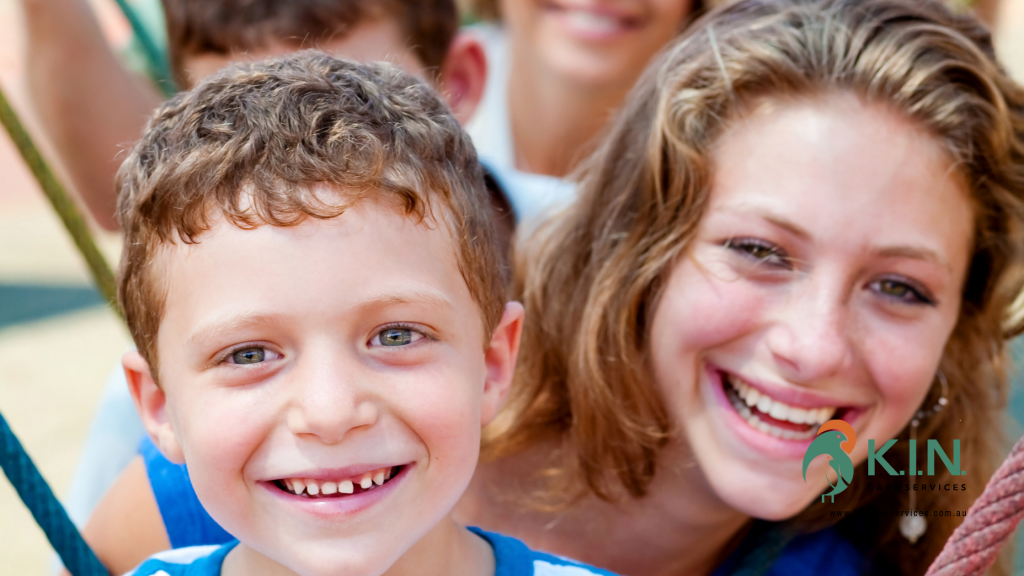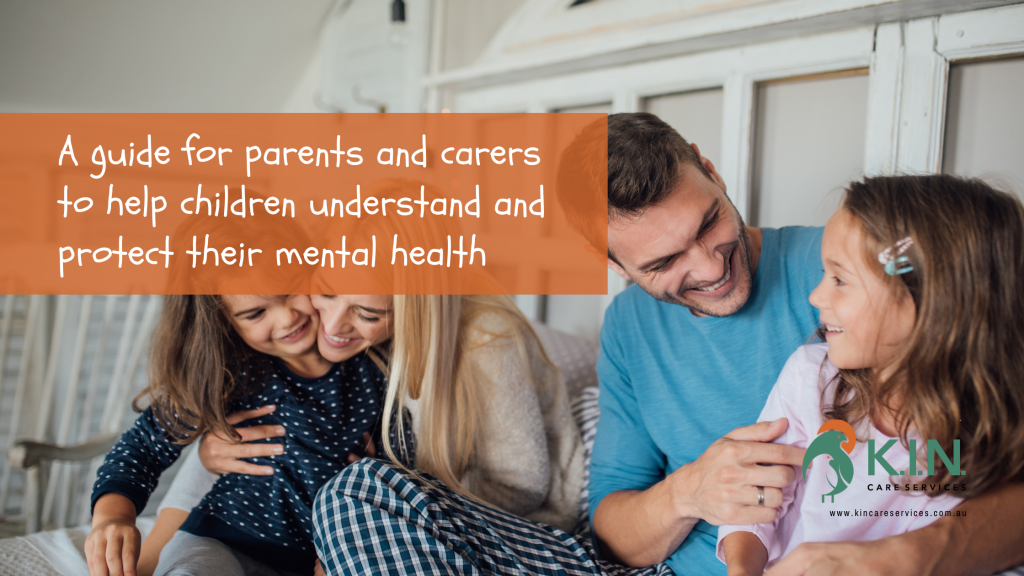As parents and carers, it is important that our children and those in our care are encouraged and supported to look after their mental health daily. K.I.N. Care Services have put together some simple suggestions for how to help your child do this.
Why is good mental health so important?
Having good mental health allows us to cope with negative and positive situations, to feel in control as well as the ability to ask for help when we need support.
Helping to support your child’s mental health
To help your child’s mental health, you can start with encouraging daily activities, together or independently. Practicing mindfulness activities also helps all ages – yoga, breathing exercises and meditation are great for calming down at the end of a busy day and can be done alone or together as a family.
We believe talking openly about mental health as well as the importance of talking about our emotions when we are feeling happy, sad, or angry is crucial to supporting your child. For younger children, watching the movie Inside Out which focuses on the importance of emotions can help them better understand. The movie tells the story of 11-year-old Riley, who has a strong and established sense of self — that is until she is uprooted from her life and cast into a new one overnight. The movie takes place through the eyes of characters who are her emotions inside her head — Joy, Sadness, Anger, Fear, and Disgust.
We should also talk with our children about staying connected with others or being physically active to take care of our minds. Group sports and after school activities can help with this.
Remember, your children are always watching so model good behaviour yourself. If you are taking good care of your own mental health, it is easier for them to see what good habits look like.

When something does not seem right
Sometimes you might worry about your child’s mental health for one reason or another. You should encourage and let them know that struggling is normal and there is nothing to be ashamed of.
For younger children, it may be hard for them to tell you what is wrong. Use activities that you do together to have conversations about how they are doing. Talking whilst doing something together, such as cooking or playing a game, can help them share their feelings more easily than a face-to-face conversation.
Often the first step to feeling better is feeling connected and knowing that someone is alongside you. Tell your child you love them, and you are always there for them. Empathy helps with connection and is often more helpful than giving advice or trying to fix their issues.
When you feel you need Professional Help
Your GP is a good start when you feel you need more support for your child. They will be able to refer you to the most appropriate mental health practitioner in your local area. This may include a Support Worker, Counsellor or Psychologist.
Additionally, Kids Helpline is Australia’s only free, confidential 24/7 online and phone counselling service for young people aged 5 to 25. For some young people, connecting with Kids Helpline has been a life-saving experience, while for others it is about practical help and emotional support at the critical moment when they need someone to listen.

